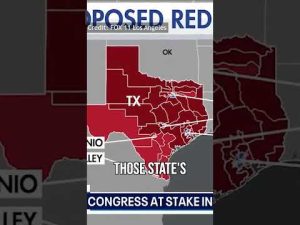In the latest political saga, media figures have once again shown their knack for sensationalizing stories while conveniently bypassing critical analysis. The commentary from MSNBC’s Joe Scarborough might exemplify this tendency by linking timelines and narratives that serve to echo well-rehearsed talking points. This story seems to revolve around claims about a past grand jury probe, suggesting a tangled web involving former President Obama’s role. However, there’s a palpable air of skepticism surrounding the legitimacy of these connections, a skepticism bolstered by insights from informed sources.
The notion of revisiting past controversies and framing them as resolved conclusions is not unfamiliar. Statements from political arenas indicate that the narrative around Russian disinformation is under dispute again. In this tug-of-war between political narratives, it appears the claims about Russian emails and their origins as misinformation have been challenged. The critique raises questions about the sources of such claims and the motivations behind their resurgence in political discourse. It’s a classic instance of political rhetoric serving up “hits” that are consumed readily by certain audiences, with scant regard for thorough investigation.
Furthermore, the alleged involvement of former President Obama in these past events remains a subject of contention. Reports suggest that the assumption of his involvement is unclear and not entirely supported by available evidence. Interviews with informed individuals point out a lack of definitive knowledge about Obama’s exact role. Instead, they shine a light on the roles of other officials, suggesting a complex network of responsibility. This complexity often gets oversimplified in mainstream narratives, leading to distorted public perceptions.
The discourse might benefit considerably from an approach that prioritizes factual integrity over sensational narratives. The constant back-and-forth over unverified claims perpetuates a cycle of distraction, detracting from pressing issues that demand attention. The real question should focus on understanding these intelligence assessments’ nuanced details rather than getting lost in the noise of partisan debates. There’s an evident demand for clarity, one that respects the intelligence of audiences seeking straightforward answers rather than convoluted theories.
In this political theater, discerning truth often requires cutting through layers of misinformation and hyperbole. As certain narratives continue to captivate segments of media and their audiences, it’s imperative to exert skepticism and demand better accountability from information sources. Voters and citizens deserve a candid discourse, grounded in fact, that shifts away from entertaining conspiracy-laden narratives to one that genuinely serves democratic interests.







